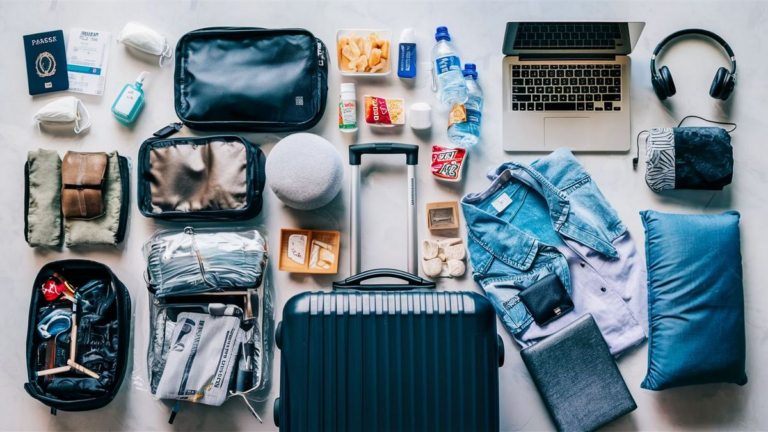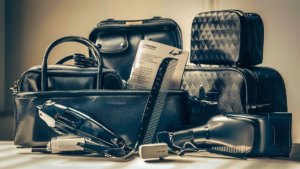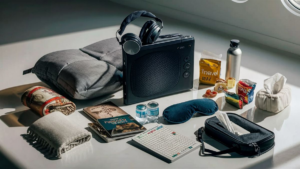Preparing to board a plane involves several considerations to ensure a smooth and hassle-free experience. Whether you’re a seasoned traveler or it’s your first time flying, knowing what you need to bring and do can make all the difference. Let’s delve into the essentials required for boarding a plane.
Valid Identification
A primary requirement for boarding any flight is valid identification. This typically includes a government-issued photo ID such as a passport or driver’s license. International travel often mandates a passport, while domestic flights may accept other forms of government ID.
Boarding Pass
Alongside identification, a boarding pass is essential. This document, obtained during online check-in or at the airport kiosk, grants you access to the plane. Ensure you have your boarding pass readily accessible, either printed or available on your mobile device.
Security Screening
Before boarding, passengers must undergo security screening. This involves passing through metal detectors, having carry-on luggage scanned, and adhering to specific guidelines regarding liquids and prohibited items. To expedite this process, organize your belongings beforehand and follow security instructions.
Checked and Carry-On Luggage
Depending on your travel plans, you may have checked luggage or carry-on items—or both. Ensure checked baggage adheres to airline regulations regarding size, weight, and contents. Carry-on items must comply with size restrictions and adhere to guidelines regarding liquids and prohibited items.
Travel Documentation
For international travel, additional documentation may be necessary, such as visas or travel permits. Research the entry requirements for your destination country well in advance to avoid any complications at the airport.
Special Considerations
If you have special needs or require assistance, notify the airline in advance. This includes dietary restrictions, mobility assistance, or medical requirements. Airlines are equipped to accommodate various needs but may require prior notification.
COVID-19 Protocols
In light of the ongoing pandemic, travelers must adhere to COVID-19 protocols imposed by airlines and authorities. This may include wearing masks, providing proof of vaccination or negative test results, and adhering to social distancing guidelines.
Final Boarding Call
Arrive at the airport well in advance of your flight’s departure time to allow for check-in, security screening, and any unforeseen delays. Listen for announcements and monitor departure boards for updates on boarding times and gate changes.
Boarding a plane involves careful preparation and adherence to various requirements. By ensuring you have valid identification, necessary documents, and complying with security procedures, you can streamline the boarding process and embark on your journey smoothly.
Travel Insurance
Consider obtaining travel insurance to protect yourself against unforeseen circumstances such as trip cancellations, medical emergencies, or lost baggage. While not mandatory, travel insurance can provide peace of mind and financial protection during your journey.
What does travel insurance cover?
Travel insurance typically covers expenses related to trip cancellations, medical emergencies, lost or delayed baggage, and travel disruptions. However, coverage may vary depending on the policy and provider.
How do I purchase travel insurance?
You can purchase travel insurance online through various insurance providers or travel agencies. Compare different plans to find one that suits your needs and budget.
Local Currency
When traveling internationally, it’s essential to carry local currency for expenses such as transportation, meals, and shopping. Exchange currency at the airport or local banks to ensure you have cash on hand upon arrival.
Where can I exchange currency?
You can exchange currency at airports, banks, currency exchange offices, and some hotels. Compare exchange rates and fees to get the best deal.
Should I use cash or cards?
While credit and debit cards are widely accepted, having cash on hand can be beneficial, especially in areas where card payments may not be accepted or incur additional fees.
Frequently Asked Questions
| Question | Answer |
|---|---|
| Can I use my driver’s license for international travel? | It depends on the destination country’s entry requirements. Some countries accept driver’s licenses as valid identification for entry, while others require a passport. |
| What items are prohibited in carry-on luggage? | Prohibited items in carry-on luggage typically include sharp objects, flammable materials, and liquids exceeding a certain volume. Check with the airline for specific guidelines. |
| Do I need to arrive early for domestic flights? | While the recommended arrival time for domestic flights is usually shorter than international flights, it’s still advisable to arrive at least an hour before departure to allow for check-in and security screening. |
See also:






